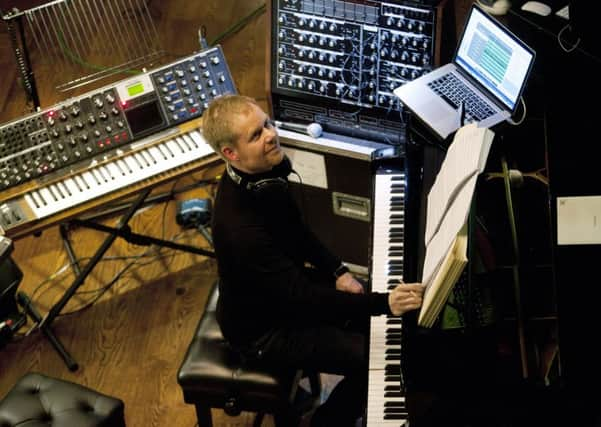Music review: Max Richter Ensemble: Three Worlds '“ Music from Woolf Works


Glasgow Royal Concert Hall ****
His catalogue is as diverse as it is accessible as it is prolific but for his festival debut, he choose to concentrate entirely on his most recent recorded work – the music for the Royal Ballet’s Woolf Works, choreographed by Richter’s regular collaborator Wayne McGregor, which comprises a contrasting trio of movements, each inspired by a different Virginia Woolf novel – Mrs Dalloway, Orlando and The Waves.
A recording of Woolf’s voice introduced the Mrs Dalloway movement, building very slowly from solo violin and gently modulating piano through graceful legato drones overlaid with a melancholic melody to a greater intensity, with intense lighting to match. Divorced of the dance, these were meditative movements to float away on. Just as well, as Richter’s array of keyboards at the front of the stage obscured the view of parts of the orchestra for those in the stalls.
Advertisement
Hide AdThe Orlando movement was by far the most sonically intriguing, almost restless in its dynamism and baroque influence. There was an instant excitement and momentum in its opening patchwork of pizzicato, suggesting an urgent, scurrying journey.
The slightly gaudy blue and green strip lighting was a reminder that we were not in traditional classical territory. Filmic surges of synthesizer were followed by a more forceful iteration of the curt bowing of the strings, this time bolstered by beefy baritone brass. A cello solo was embellished with bubbling electronics, and synthetic arpeggios with crystal chimes.
Then the sound party was over, as a voiceover recording by actress Gillian Anderson captured the sobering emotion of Woolf’s final written words, her heartbreaking suicide note to her husband Leonard Woolf, in which she bade goodbye to life and language, setting the tone for the final movement, whose glacial ambience was complemented with exquisite, echo-laden solo soprano from Grace Davidson until the inexorable build of emotion fell away to the sound of lapping waves.
The audience were hungry for more but Richter kept it simple by encoring with one of his best loved pieces, the intimate, mournful On the Nature of Daylight.
FIONA SHEPHERD